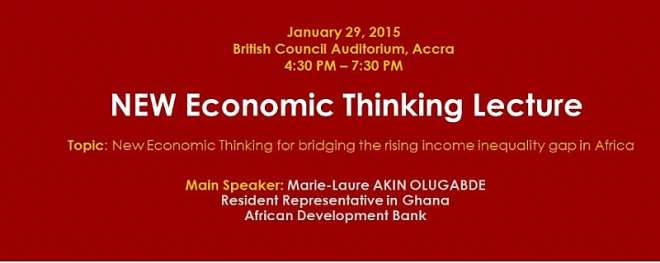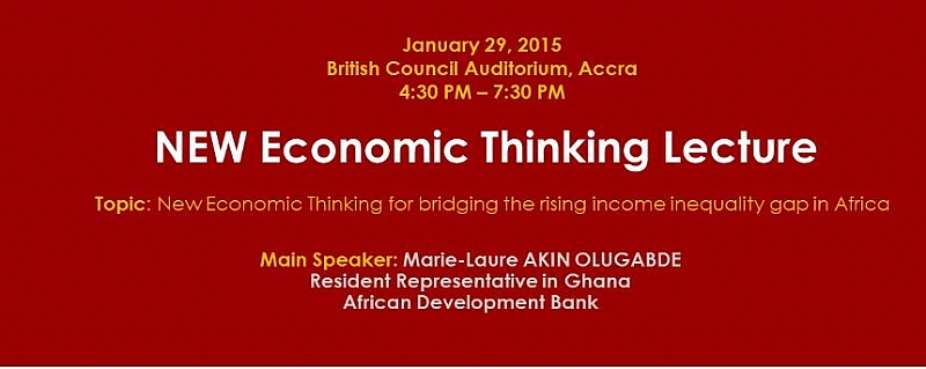Many African economics are entering 2015 with the hope to better the lots of their citizens. Economies are expected to scale up growth and reduce poverty. The African continent accounts for a large share of the world's people living in absolute poverty. The number of impoverished people has doubled since 1981. Africa's share of the world's poor rose from just below 20% to close to 25% (Kayizzi - Mugerwa, 2001). Nearly 50% of the population in Sub-Saharan Africa live on less than US$ 1 a day today: the world's highest rate of extreme poverty.
However, over the last decade, Africa's economies are consistently growing faster than those of almost any other region – and at twice the rate of the 1990s. In the world economic growth league, Africa has moved from the lower echelons to the premier division.This has led to improvements in several areas such as trade, mobilization of government revenue, infrastructure development, and the provision of social services.
Exports are booming and export markets have become more diversified. Foreign direct investment has increased by a factor of six over the past decade. Private entrepreneurs have emerged as a dynamic force for change, driving innovation and transforming outdated business models. There is an emergent middle class, although its size is often exaggerated. For the first time in over a generation, the number of people living in poverty has fallen. Fewer children are dying before their fifth birthday and more are getting into school.
In 2015, the continent faces a challenge to scale up this momentum and transform itself. Some key areas of economic priorities include but not limited to the following:
#Achieving Inclusive Growth and reducing the Rising Income Inequality Gap
Economic growth and prosperity as discussed above is a relative term. To some, it means that overall, the economy is doing well and most people have sufficient income for essentials and perhaps a little extra. To others it means that businesses are hiring and jobs are relatively easy to get. It does not mean that everyone has a job or that everyone is well off.
Why does economic development not translate into human development and reduction of poverty? Is the current African growth inclusive and sustainable enough?
This brings to light, the importance of making the spread of economic prosperity more inclusive and this also means that there is the need to critically examine a variety of issues such as identification of strategies for ensuring that growth translates into improved livelihoods for people; policies that empower the poor and landless, and educational policies that build the capacity of youth and other disadvantaged communities and enable them to participate in the economy.
In addition to Africa being one of the poorest regions in the world, the continent is also the world's SECOND MOST INEQUITABLE REGION after Latin America. Inequalities have not diminished over time. In 2010, six out of the 10 most unequal countries worldwide were in Sub-Saharan Africa, and more specifically in Southern Africa.
Income inequality is therefore rising to be a major challenge to Africa in 2015. The only means economically viable for the continent to bridge the gap between the rich and the poor is through inclusive growth.
Through inclusive growth, the continent can reduce poverty to the minimum level. Inclusive growth would make the poverty reduction efforts more effective by explicitly creating productive economic opportunities for the poor and vulnerable sections of the society. It will decrease the rapid increase in income inequality and poverty in Africa and increase the involvement of people in the economic prosperity.
#Financing the Future
Perhaps, the second economic priority in 2015 for Africa is to be able to fund infrastructure projects.
Energy, water, sanitation, telecoms and transport have long being identified as the major infrastructure setback to the continent. Energy supply continues to be Africa's largest infrastructure challenge with 30 countries experiencing frequent power outages with just over a third of Africa's population having access to electricity. Road constitute 90% of Africa's urban transportation. Poor infrastructure is costing each member country's growth to reduce by 2percentage point each year and cut productivity by as much as 40%.
In a fact, high cost of transport, energy and internet access is a major economic growth deflator and is partly associated with Africa's continued economic marginalization. 154 Evidence collected by the World Bank's Africa Infrastructure Country Diagnostic, for example, has shown that improvements in transport, energy and communications infrastructure have contributed substantially more to African per capita growth over the past decade than structural policies
According to the World Bank, about $93 billion is needed annually to be able to fund Africa's infrastructure for the next 10 years. Which is about 15 percent of the region's GDP. About $60 billion of this would go to funding of new projects and the rest would go into the maintenance of the existing ones.
Infrastructure plays a pointed, often decisive role in determining the overall productivity and development of a country's economy, as well as the quality of life of its citizens. Infrastructure development supports various kinds of economic activity, including as an input into production and also raises the marginal product of other capital used in the production process.
Given the substantial amount involved, in 2015, governments will need to be innovative in the search for sustainable approaches to infrastructure development as well as financing. The private sector will need to play an increasingly important role. Governments will do well by creating conditions where private-sector engagement is encouraged, probably through public-private partnerships (PPPs).
#Integration for transformation
The potential of a unified Africa is very huge. This has been identified by all economies especially at the various regional blocs.
Economic integration can simply be looked as the unification of economic policies between different states through the partial or full abolition of tariff and non-tariff restrictions on trade, taken place among them prior to their integration.
Regional integration is not only about trade in goods. It encompasses regional co-operation on a wider range of matters. It covers other issues such as investments, services, labour etc.
Through strategies, policies and programs and activities of regional integration, the 54 fragmented economies on the continent could become one robust, diversified and resilient economy, supported by a first class trans-boundary infrastructure, highly educated; flexible and mobile workforce, highly mobile financial capital; sound quality health facilities and peace and security.
In 2015, Africa needs to overcome the constraints of marginalization in the global market place in order to transform itself and this can strategically be achieved through economic and political integration.
Paul Frimpong, Ch.E.
Chartered Economist and the founder of Young Professional Economists Network (YPEN)
He is also a fellow of the Bastiat Ghana Institute
The Young Professional Economists Network (YPEN), is a non-profit; and an independent global organization which is established to raise new economic thinkers who will positively impact the 21st century and beyond.
www.ypenetwork.org
Tel: +233 -241 229 548
Email: [email protected] / [email protected]






 NPP Performance Tracker prioritise toilets over substantive infrastructure dev’t...
NPP Performance Tracker prioritise toilets over substantive infrastructure dev’t...
 Ghana, other election bound-countries must build fiscal buffers – IMF admonishes
Ghana, other election bound-countries must build fiscal buffers – IMF admonishes
 Parliament reconvenes late May, denies Speaker Bagbin delaying recall over NDC t...
Parliament reconvenes late May, denies Speaker Bagbin delaying recall over NDC t...
 $100m needed to revitalise Ghana's poultry sector — GNAPF
$100m needed to revitalise Ghana's poultry sector — GNAPF
 Driver arrested for causing train collision on Tema-Mpakadan Railway Line
Driver arrested for causing train collision on Tema-Mpakadan Railway Line
 Police grab trucker for Tema-Mpakadan rail accident
Police grab trucker for Tema-Mpakadan rail accident
 Gov't plans to revise traditional customs following Gborbu child marriage
Gov't plans to revise traditional customs following Gborbu child marriage
 Franklin Cudjoe fumes at unaccountable wasteful executive living large at the ex...
Franklin Cudjoe fumes at unaccountable wasteful executive living large at the ex...
 I'll 'stoop too low' for votes; I'm never moved by your propaganda — Oquaye Jnr ...
I'll 'stoop too low' for votes; I'm never moved by your propaganda — Oquaye Jnr ...
 Kumasi Thermal Plant commissioning: I pray God opens the eyes of leaders who don...
Kumasi Thermal Plant commissioning: I pray God opens the eyes of leaders who don...
